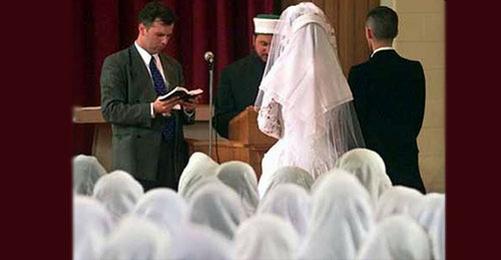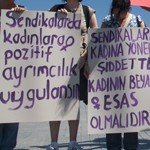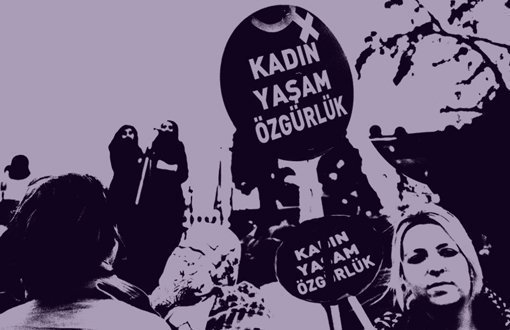The Silopi Viyan Women Solidarity Centre carried out a research into the situation of so-called "co-wives", i.e. the wives of a man who is married to two or three women at the same time.
The research was conducted with women living in Silopi, a city in the province of Şırnak in the predominantly Kurdish region at the south-eastern tip of Turkey with borders to Iraq and Syria. It reveals important data on the living conditions of women from Turkey and abroad who came/were brought to the country as second or third wives.
Just under two thirds (63 percent) of the women who came from abroad as second wives got married when they were younger than 20 years of age. 32 percent are illiterate. With 90 percent, the vast majority of these women do not work. The ones who do work are helping out in vineyards, gardens and agricultural fields owned by the family.
70 percent of the first wives with Turkish citizenship are illiterate. 80 percent of them got married under 20 years of age. More than one third (35 percent) of first wives in polygamous relationships have more than seven children.
They are treated violently but cannot talk about it
80 percent of the women coming from abroad know the Kurdish language. Nevertheless, 50 percent of them have difficulties in communicating due to different dialects.
If they are not married formally, the co-wives are living in Turkey without official documents. Hence, they are not able to talk to anybody in case they are experiencing violence or other forms of rights violations. Their children are being registered in the names on other co-wives with Turkish citizenship or on behalf of their mother in law in order to be able to benefit from the official system.
N.F., a woman who came from Iraq as a second wife, recalled, "I got married when I was 14 years old. My life in Iraq was better considering the situation of my family, women rights, going out or gender equality. It is very difficult for me here. I am not officially married. My children are registered in the name of another co-wife (...)"
L.D. who came to Turkey from Syria said, "I am 22 years old. I am not officially married. I came without official papers. I cannot go out of the house because of this problem; I cannot talk to anybody (...) The lives of the women here are very problematic and just desperate".
According to the study, one quarter (25 percent) of the first wives and 21 percent of the second or third wives are being treated violently by their husbands. However, the actual numbers are estimated much higher since 44 percent of the women who participated in the research said in other contexts that they were not able to talk to anybody about the violence they were experiencing.
Oppression used against each other
Another finding of the study concerned the pressure imposed to their wives by the husband that has become a tool used by other women in the family.
A woman from Syria explained, "(...) My mother-in-law and my sister-in-law put a lot of pressure on me. It is very difficult for me. I have health problems due to the difficulties (...). They do not let me leave the house at all; I am not able to get out of the house at all. I cannot talk to anybody about my troubles (...). The family of my husband is constantly telling me off".
The women said that they were used as servants in the house. "The men perceive themselves at the higher status of a slave-master who marries women brought from abroad. For their other wives they put forward pretexts like advanced age, having too many children or that they should serve the husband's mother", the study claimed.
A woman from Iraq described, "Even the smallest discussion is approached with the attitude that I have been brought there in exchange for money. I am much more a servant in the house". Another woman from Syria said, "I understood that I was not brought to this house as a wife but as a servant. My husband scolds me when I tell him about this sort of problems".
The Silopi Viyan Women Solidarity Centre found out that there is no solidarity between the women they interviewed which makes them even weaker.
N.F. from Iraq concluded, "I hope that all women will obtain their freedoms. This was my destiny, I experienced it and I hope that no-one will experience the troubles of a co-wife. Women living as co-wives say 'We lived through it and long live anybody who experienced this'. This is not right. There is no solidarity between the women (...)". (ÇT/VK)










.jpg)



